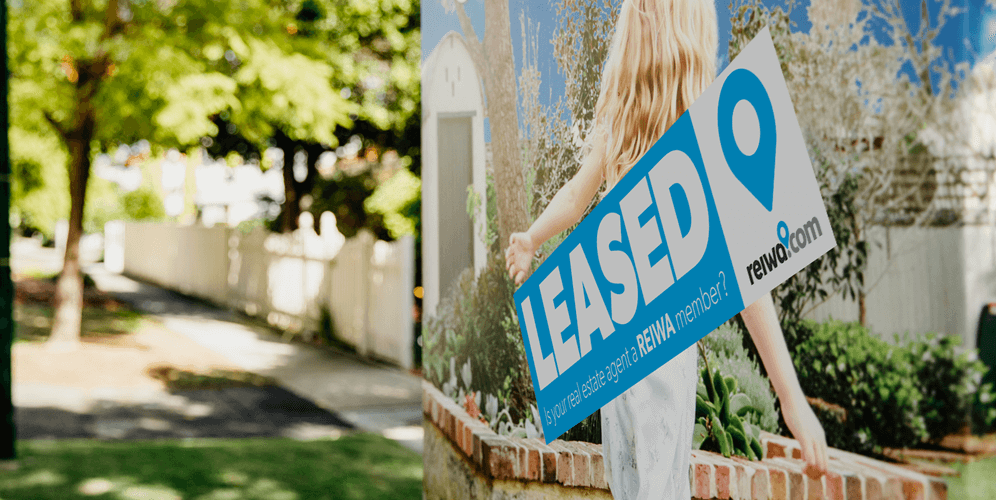
Perth’s vacancy rate was 0.7 per cent in March, unchanged from February and January.
REIWA CEO Cath Hart said the ongoing shortage of rental properties meant more rent rises were a certainty, with many tenants facing their first increases since interest rates started to rise nearly a year ago.
“There has been a lot of talk about the ‘mortgage cliff’ and the financial shock about 800,000 Australians will feel as their fixed rate loans return to variable this year following 10 interest rate rises, but there are also thousands of tenants on fixed-term leases facing a similar issue,” she said.
“Data from www.reiwa.com shows Perth’s median monthly rent* has increased 17 per cent since April 2022, however ABS data shows a 44 per cent increase in WA’s average mortgage repayments** over the same period,” she said.
“So tenants who may have signed 12-month agreements in April, May or June last year for example are likely to see their rent payments increase, perhaps significantly, when their lease expires in the next few months as owners pass through some of the significant increases in their mortgage repayments for their investment property.
“We have however been pleased to hear about investment property owners not passing on the full increase where their personal circumstances allow and making more moderate rent increases in order to retain good tenants.
“REIWA property managers often counsel property owners on the importance of retaining good tenants, noting that if you increase the rent sharply now, tenants may seek to end the lease when rents start to fall, as they eventually will.”
Ms Hart said there were many investment property owners who had seen their mortgage costs increase significantly since April 2022 but had not been able to increase the rent while tenants were on fixed leases, which make up the majority of leases in WA.
“It is understandable that property owners will try to recoup, at least in part, some of their extra interest rate costs when leases are due for renewal,” she said.
“This is not always possible in some market conditions, such as when there is a higher vacancy rate and tenants have more choice, but the current competition for rental properties amid WA’s housing shortage is driving rent price growth.”
Ms Hart said unfortunately there was no relief in sight for the rental market.
“The Reserve Bank of Australia expects the imbalance between demand and supply in the housing market to result in rent inflation being quite high for a while,” she said.
“Supply is a major issue for the WA rental market. We’ve now lost over 19,200 rentals across WA since January 2021, yet our population is estimated to have grown by more than 70,000 in that time.
“We’re waiting for building completions to provide some relief and we are pleased to see the interest shown in our market by interstate investors, but we desperately need more people willing to buy a home for someone else to live in to help fill the supply gap.”
The decline in new building approvals was another supply issue.
“WA’s long-term average for new home building starts is about 22,000 new builds per year to meet housing needs, either for people looking for a new home or an investment,” Ms Hart said.
“While approvals soared following COVID building incentives, monthly approvals for private houses fell to 866 in January in seasonally adjusted terms, their lowest since mid-2012. There have only been five months lower than this since 1990. And while they rose in February, the increase was just 2.4 per cent.
“People have been deterred by the significant delays and rising costs in building and the concern around interest rates, but with our growing population, this will just continue to put pressure on the established homes market for both sales and rentals.”
With rent rises set to continue, Ms Hart reminded owners and tenants that rent increases are regulated in WA and can’t simply be put up whenever the owner pleased.
“The Residential Tenancies Act regulates when the rent can be increased, and it is not at the whim of property owners,” she said.
“If tenants are in a periodic tenancy, rent increases can only occur every six months and they must be given at least 60 days’ written notice stating the amount of the increase and when it will take effect.
“If they have a fixed-term agreement, the rent can only be increased during the term of the tenancy if the lease agreement specifies how much the increase will be or the method of calculating it, such as by a certain percentage. The property owner must give the tenant 60 days’ notice of the increase.
“If a fixed-term agreement allows for rent increases, they can only occur six months after either the start of the tenancy or the date of the last increase.”
“Tenants can negotiate with the property owner if they feel an increase is unreasonably high,”
“They can also apply to the Magistrates Court to argue against the proposed increase if attempts to negotiate fail – but of course this is the last resort and we encourage tenants and property owners to seek an amicable resolution to any dispute.”
Tenants and property owners can also contact REIWA’s free Information Service on 9380 8200 for guidance on rent increases.
Sourced from REIWA




